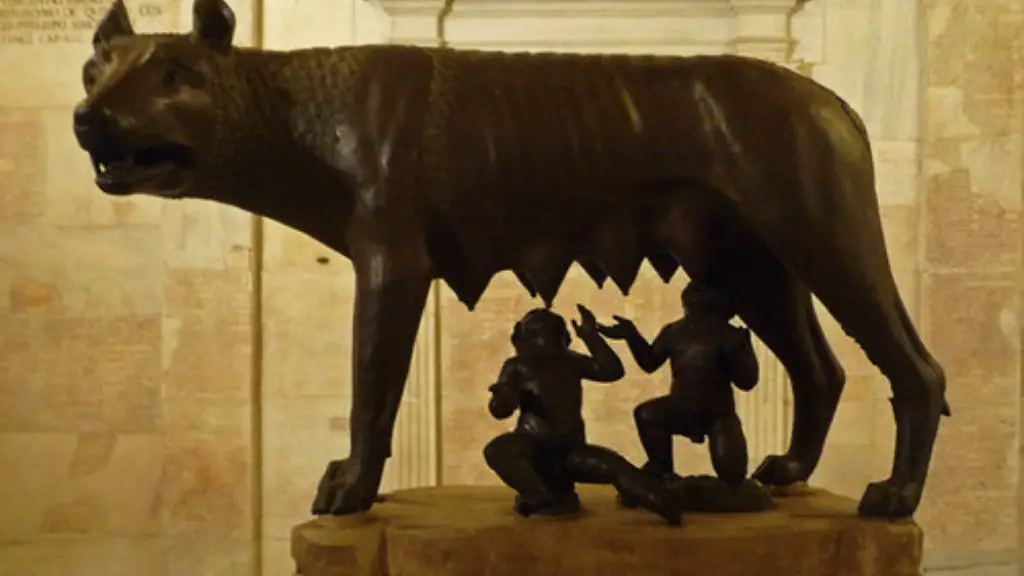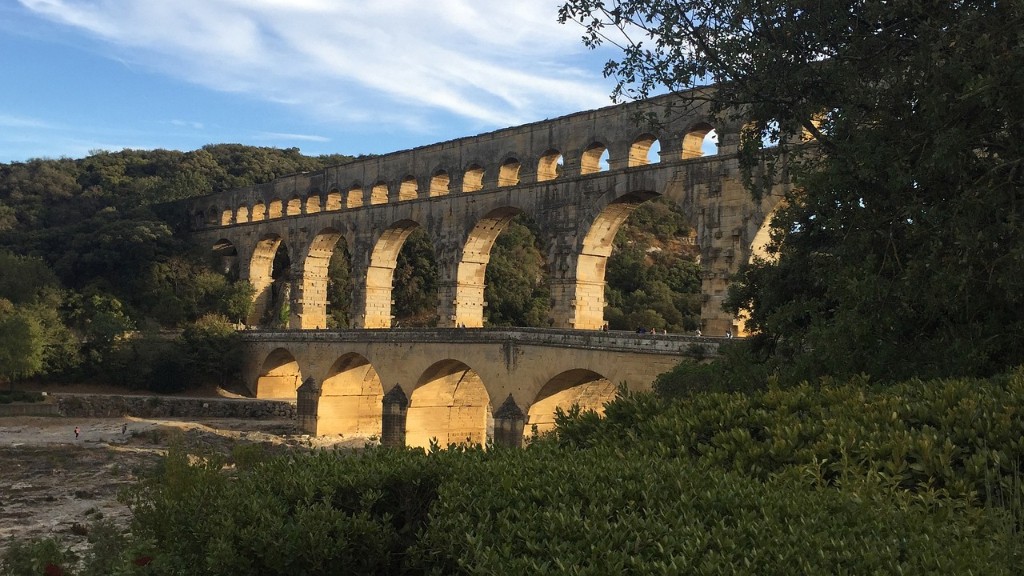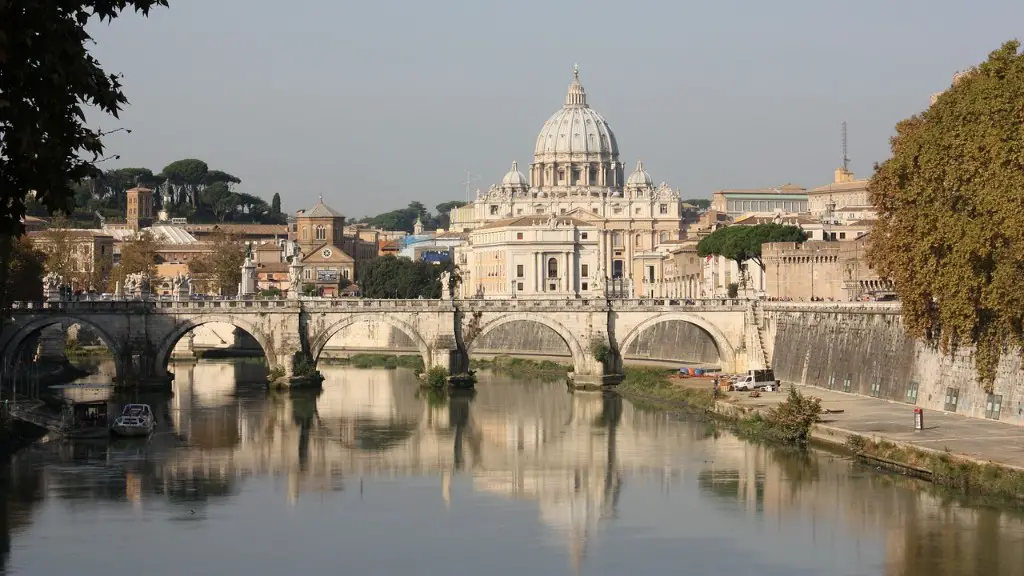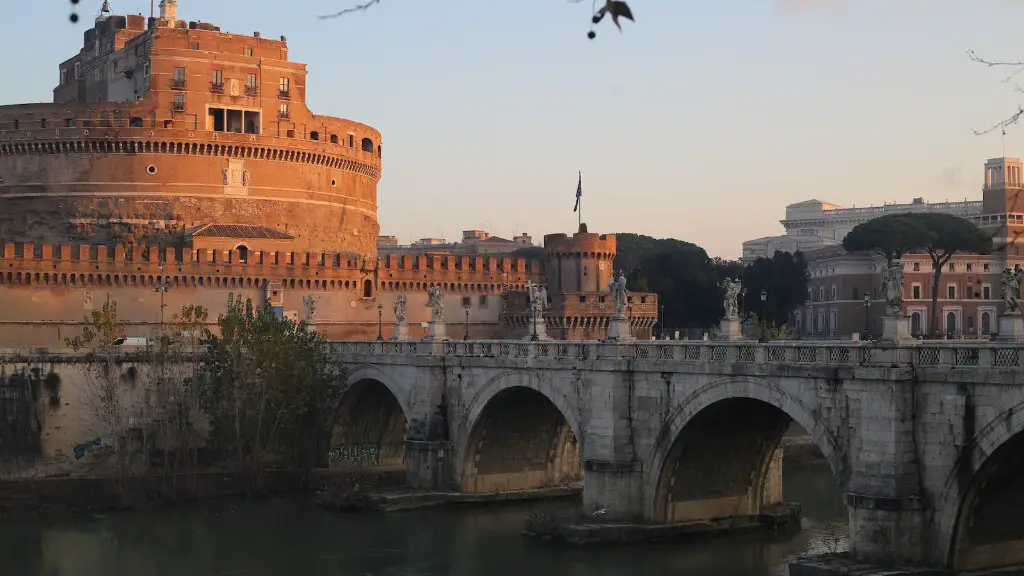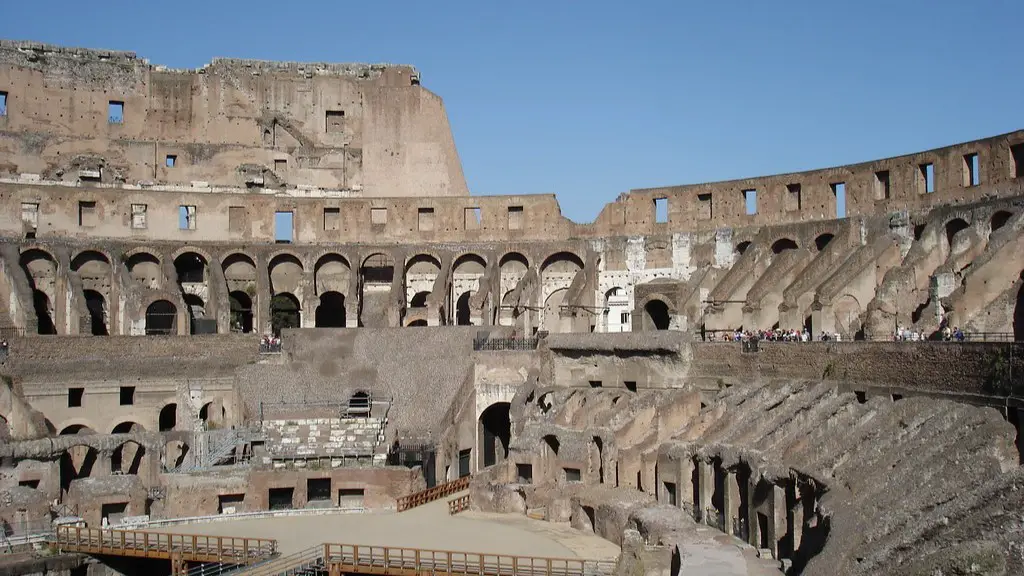Ancient Rome is one of the most powerful and prosperous civilizations of all time. It developed a system of government that would influence the Western world for centuries. From mercantile gains and the beginnings of nation-building, the development of modern democracy and philosophy, the Roman civilization was instrumental in providing the basis of many of the values and principles of our society. The influence of the Roman civilization was wider than the boundaries of its physical and political presence, and even after its fall, Roman culture and values continue to shape the world and its development.
The society of Ancient Rome was quite a complex affair with a large number of social classes of citizens, all of which had a crucial role in the functioning and the power of the city. The Roman state distinguished among the freeborn citizens, foreign citizens and slaves of different origin, who were all governed under different sets of laws. This meant that even if there was a parallel concept and a similar context of Roman law respecting property, contracts, employment etc., the legal position and rights of citizens were dependent on their social state and origin, and in this way, the system allowed for a great degree of social mobility and quick adaptation to the changes and requirements of the state.
The Roman government was highly sophisticated and had a great focus on organization and centralization. Strong government bodies composed by the Senate, the Senate Presidium and the Tribune worked on the principles of efficiency, develop a vast and powerful administrative authority and developed the first version of central banking. Through a complex network of roads, the transportation of goods and people, the spread of culture and knowledge and the organization of a powerful and effective taxation system, the Roman state had the monopoly on the circulation of money and goods, and coordinated the resources of public works.
The Roman military prowess was renowned and respected by most of its contemporary states. The way that it was organized, the discipline, the training and the weapons were the most advanced for their time, and the Romans were recognized as the undisputed masters of the Mediterranean area.
Advancements in engineering and architecture is another salient facet of Ancient Rome. Huge aqueducts, roads, tunnels, bridges and monuments were constructed, including the famous Coliseum, Pantheon and the Roman Forum. This is another aspect of Roman society that has endured throughout the ages, as some of its monuments are still standing today, inspiring both awe and admiration.
The concept and ideals of Roman law provided the basis for modern jurisprudence, and it remains to this day the core of legal systems in the West. The concept of Roman law was based on humanitarian principles, the decision of a higher body and the autonomous value of the law. What is more, it remains to this day that in order to understand the legal history of any particular country in the West one needs to understand the basis of Roman Law.
The language of Ancient Rome was Latin, which evolved over time and eventually evolved into the Romance languages of French, Portuguese, Spanish and Italian. Latin is still used today in scientific and some legal contexts, in that it provides a uniform language used in communication, and makes complex transactions or processes easier to understand.
Ancient Rome has had a great influence on Western civilization and it is no wonder that it is regarded as one of the best civilizations in the world. The legacy of Roman law, its language and its engineering marvels are the fundamental basis of a large part of the world today, and it is not hard to see its influence on the way we live and interact with each other.
Religion in Rome
In Rome, the traditional religion was based on a pantheon of gods and goddesses, each of them associated to a certain domain and with a specific ritual practice related to its characteristics. Worship in temples, the offering of sacrifices and rites in private domes were part of the religious practices in the region, as well as the more “private” religious beliefs such as divination, astrology and magic. Through their religious life, the Romans reached a far concept of their gods, and developed a unique culture, traditional and mythical, that still influences our way of looking at the universe.
It was the Roman Imperial Cult that had the largest influence in the empire’s cultic life. The worship of the emperor, even if initially developing as a form of nationalistic cult, eventually became a religion of its own. For centuries, emperors were worshipped and celebrated as gods, establishing a direct connection between the state and the divine. This cult was so related with the power and the ideology of the emperors, that after the fall of their regime the cult was just forgotten.
The arrival of Christianity to Rome in the 1st century A.D. and the eventual rise of the religion as the official religion of the Roman empire had an immense influence on the imperial religion, though it wasn’t the only religion in the region. Despite the adoption of Christianity as the main religion of the empire, many pagan beliefs were still part of the culture and the worship of gods never vanished completely in some rural areas. With Constantine I, Christianity became the one and only officially recognized faith in the empire, and the power of the Church was assured for centuries.
Economic system in Rome
The economic system of ancient Rome was mainly based on the practice of slavery and had a great impact in different aspects of society. Slaves provided most of the labor, even in the most prestigious parts of society, and they also provided valuable resources in different areas such as agriculture, military and manual labor. Most urban manufacturing and artisan skills were performed by slaves and manual work in general was usually done by them as well.
The slave system made up the labor force of the Roman Empire and it allowed for a high degree of investment in other sectors such as construction, public works and the development of infrastructure. While it was a prosperous system, and it provided stability to the Empire during the imperial period, it is believed that this system of exploitation and lack of freedom led to the overall decline of the Roman Empire.
Trade and commerce were also important economic activities in Ancient Rome. The Romans were connected to other civilizations and empires through trade, exchanging goods for raw materials, luxury items and other goods. In this way, the Romans were able to accumulate a considerable wealth from the trade of exotic materials and valuable resources.
The structure of taxation in the Roman Empire was also quite complex and it changed over time. The emperor and the state had a taxation system that collected taxes from different classes of citizens and it varied over time depending on the necessities of the state. This complex system allowed for a great degree of taxation, which in turn allowed for investment in infrastructure, public works and the maintenance of a large army.
Culture and Arts during Roman Empire
Ancient Rome left an enormous legacy in terms of culture and arts. It was a society deeply intertwined with the visual and performing arts, and it has contributed significantly to modern culture. In the visual arts, highly refined works of pottery, mosaics, and paintings have been discovered and studied. You can still see these works in museums around the world, as well as in archaeological sites throughout Italy and the Mediterranean.
In architecture and engineering, the Romans used sophisticated techniques to build some of the most impressive structures seen in the ancient world. From the Colosseum to the Pantheon, from aqueducts to major roads, their engineering feats are still admired globally. Furthermore, a particular style of Roman architecture has been used in so many public and private buildings since antiquity that it has even earned its own name: neoclassical.
Theaters were an important part of Roman culture, where plays of all sorts were written, ranging from the strictly comedic to the highly political. These performances were always appreciated by large crowds of people, which is why it is not surprising that some of the oldest records of theater in the West come from Ancient Rome.
In music, Ancient Rome left us some of the most important works from writers such as Horace and Virgil, who wrote about music in symposia and other social events. Archaeological finds such as flutes and lyres also point to the presence of music in the Roman Empire.
The Fall of Rome
The fall of the Roman Empire is a complex process, and it is the result of multiple factors that have been studied by historians for centuries. From the use of the ancient gods in their worship of the emperor, to the emergence of Christianity, to the development of a bureaucracy that replaced the armies, and to the decline of the economy and the use of slave labor, all of these factors had an influence on the downfall of the Roman Empire.
The decline of the Roman Empire is seen as a dark period in history, though a few positive aspects can be highlighted. During this time, religious tolerance and the development of philosophy emerged, new forms of writing and literature emerged, and Christianity eventually spread across the Roman Empire and beyond. These aspects prove that despite the decline of the Roman Empire, some of its culture and values survived, and still shape the world today.
Conclusion
It is no wonder that Ancient Rome is still praised as one of the greatest civilizations in the world. Its system of government, its expansive military power, its engineering feats and its lasting cultural legacy, all of these aspects have helped establish the Roman society as an example of strength and stability in the ancient world, and as a society that has provided invaluable lessons to countless generations in the West.
